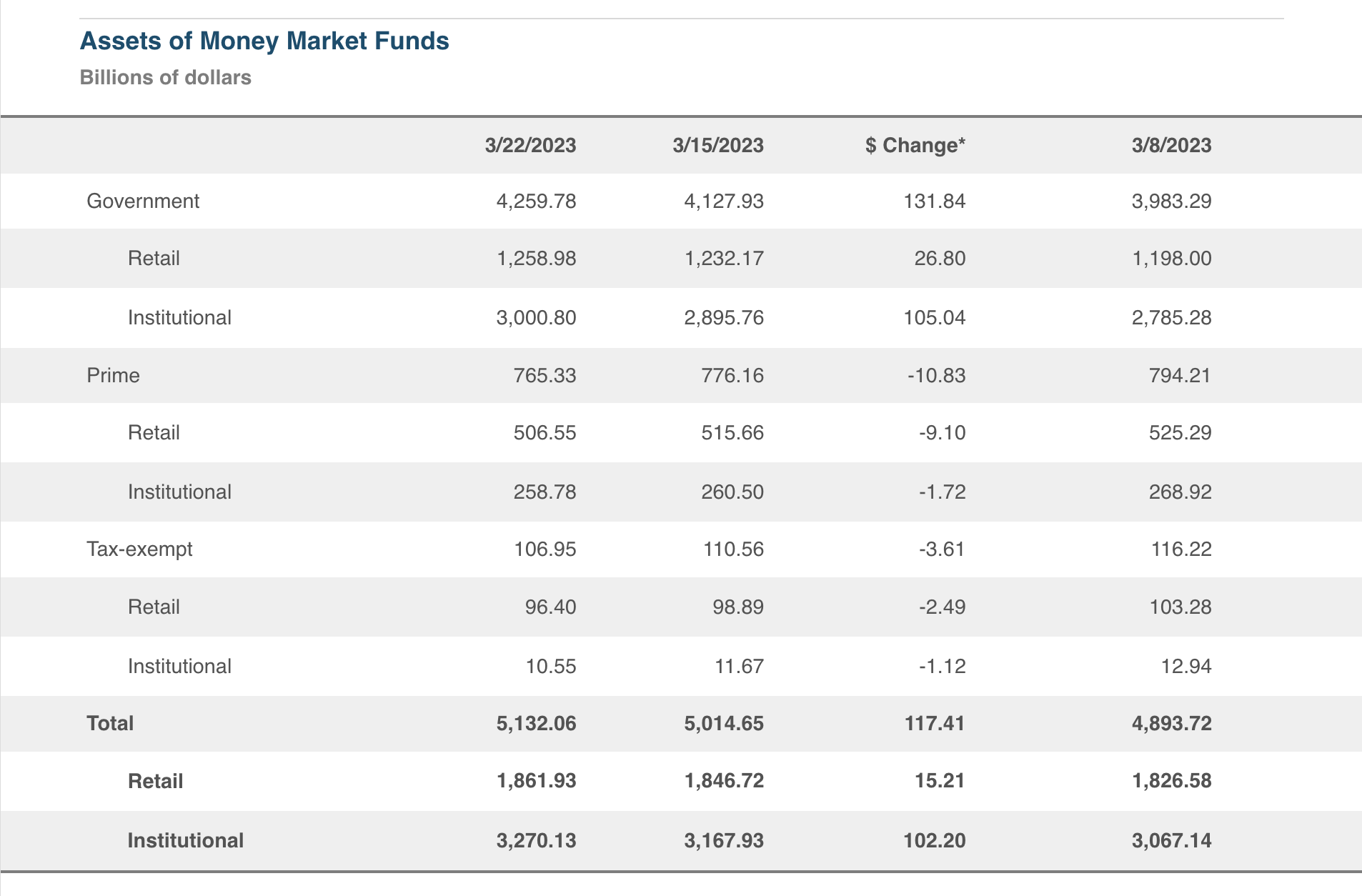The banking crisis has led many investors to rotate their portfolio investments in the past two weeks, sending over $286 billion into United States money market funds so far in March, according to EPFR data obtained by the Financial Times.
The top winners from investors flooding cash into US money market funds in the past two weeks are Goldman Sachs, JPMorgan Chase, and Fidelity, according to the figures. Goldman Sachs’ money funds have received $52 billion, a 13% growth, while JPMorgan’s funds poured almost $46 billion and Fidelity saw inflows of nearly $37 billion, says the FT. The volume of inflows is the biggest for a month since the emergence of the Covid-19 outbreaks.
A money market fund commonly offers high liquidity and low risk, which makes them a popular option for investors during uncertain times. Currently, these funds are offering its best yields in years as the U.S. Federal Reserve keeps raising interest rates to curb inflation.

Over a period of seven days ending on March 22, the total money market fund assets increased by $117.42 billion to $5.13 trillion, according to a report from the Investment Company Institute. Among taxable money market funds, government funds increased by $131.84 billion and prime funds dropped by $10.83 billion. Tax-exempt money market funds shrank by $3.61 billion.
Magazine: Unstablecoins: Depegging, bank runs and other risks loom
Money market funds inflows are driven by fears surrounding the financial system health as banks in the US and Europe face liquidity constraints amid monetary policy tightening.
On March 24, Deutsche Bank shares dropped due to an increase in the cost of insuring against its potential default risk. The German bank’s five-year credit default swaps, known as CDS, climbed 19 basis points (bps) from the previous day, closing at 222 bps, according to Reuters, which cited S&P Global Market Intelligence data.
In the United States, uncertainty still looms over regional banks as insurance on default for financial services firms Charles Schwab and Capital One soared last week, with the latest seeing credit default swaps jump over 80% to 103 bps as of March 20.
BREAKING: Credit Default Swaps (CDS), insurance on default on Charles Schwab EXPLODE pic.twitter.com/KJdNTq2xMm
— Bitcoin News ⚡ (@BitcoinNewsCom) March 24, 2023



